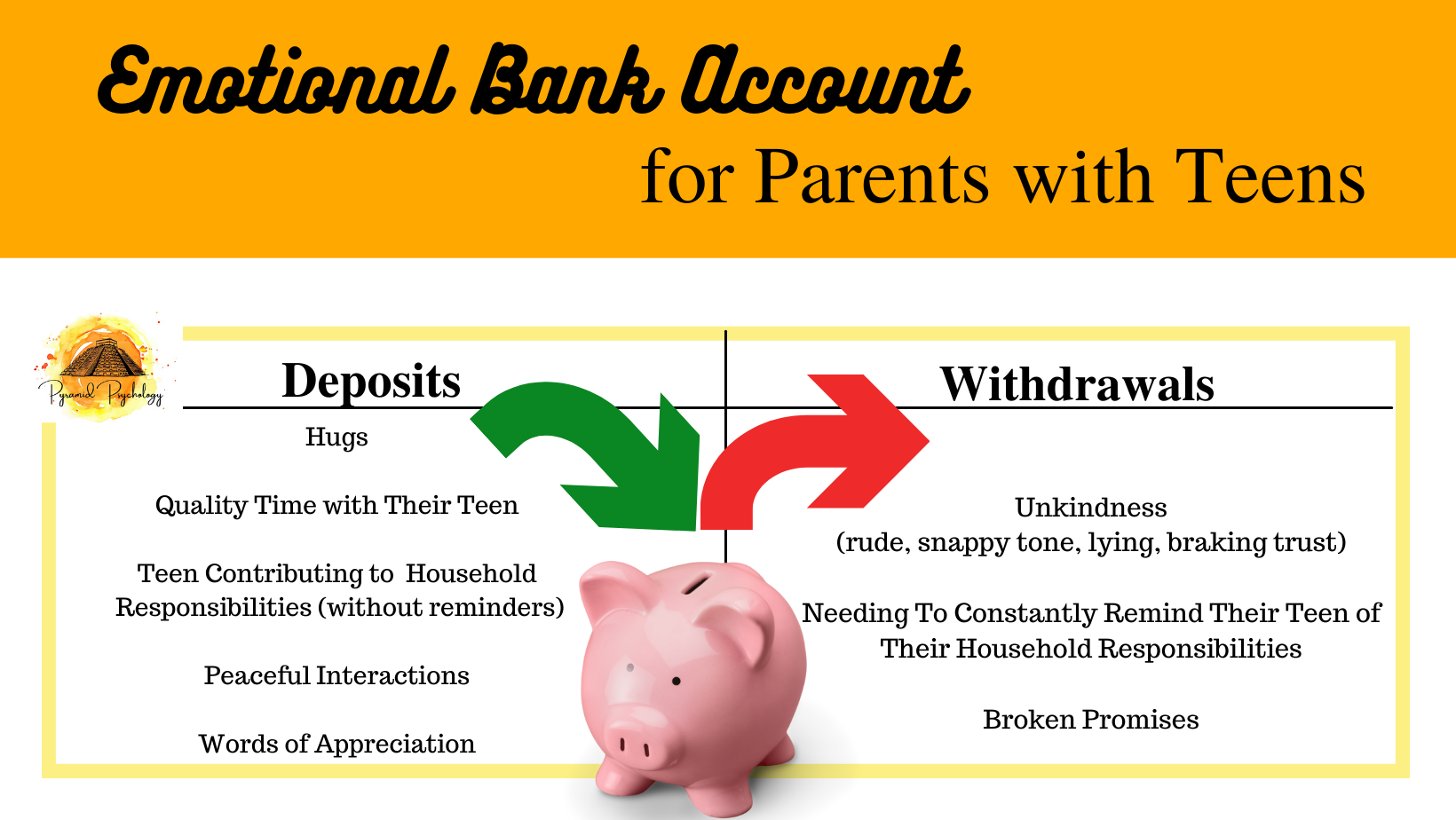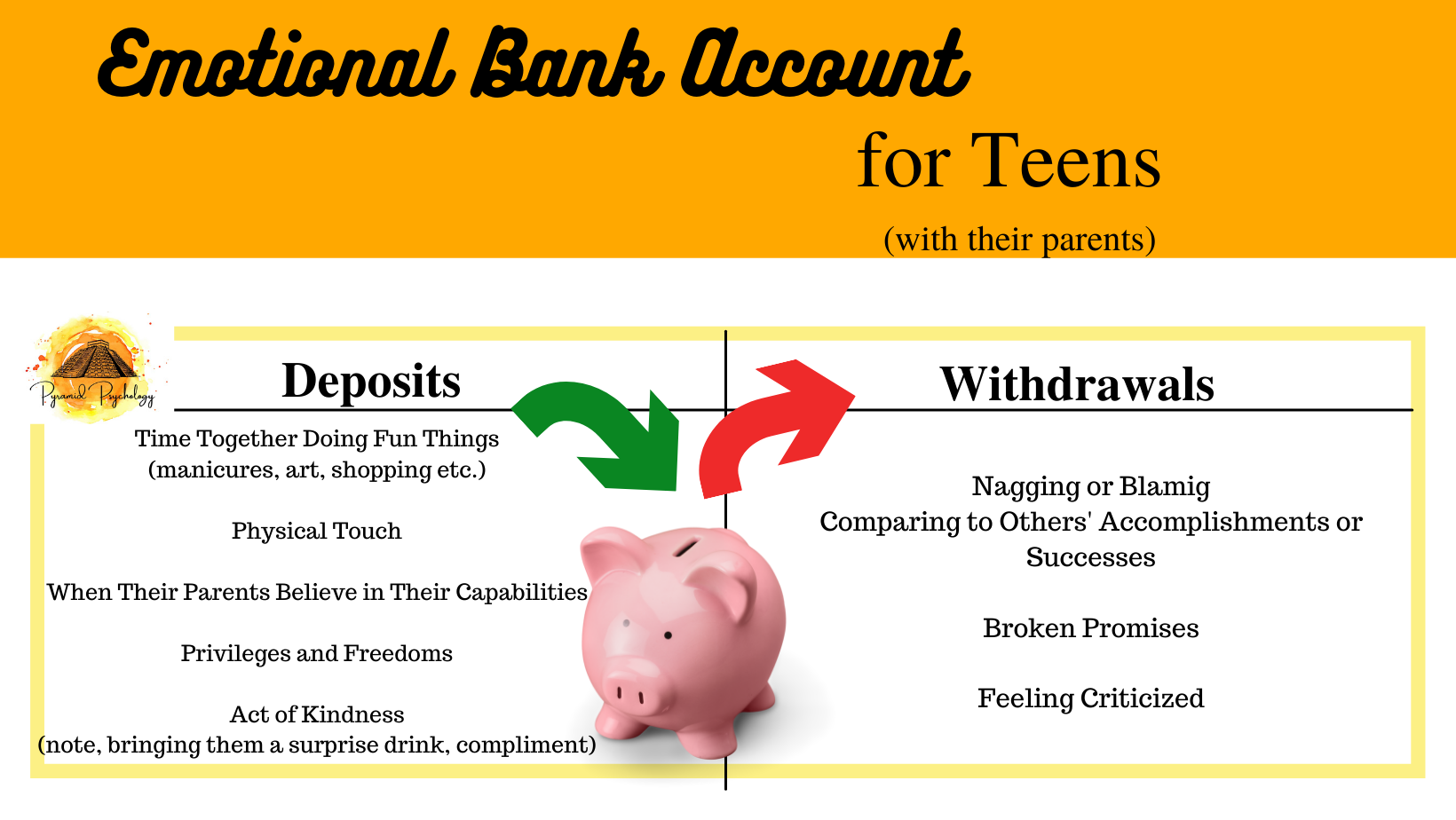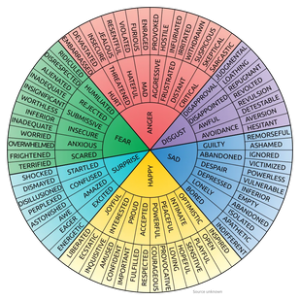How Control Can Help Your Anxious Teen
I was listening to a podcast this week and they were talking about choice and control being such an important part in helping your anxious teen manage their anxiety. And it really is!
… Technically, control is an illusion; there is very little we can truly control. But, before I send you running into despair with that thought, let me tell you how you can help your teen (and yourself) learn how to manage that aspect of their mind – and create their own sense of control.

Photo by Joice Kelly on Unsplash
What is control for your anxious teen?
Having a sense of control for your teen is a big deal. It’s about having agency – choices, decision making power, actions, plans, etc. Such as things they truly have some say about.
Ever had your teen pushback when it comes to helping out around the house because you’ve “forced” them to do something they don’t like or feel like doing? If you’ve found yourself cleverly giving them options, like the time they complete the chore or which responsibility they’d like to take on, you might have noticed that resistance just fade away. Because, as soon as your brain sees choices and options, it reduces stress and anxiety around a circumstance. It also provides a sense of safety, knowing there is an action you can take- something to be done about it.
Think of when your teen is preparing for a presentation. There will be some things that aren’t in their control – their teacher’s expectations, parameters around the project rules, due date, etc.
Thus, encouraging agency and control for your anxious teen is about helping them see where they can control things… What are the elements of choice with their presentation? – the theme, who they can work with (if the teacher allows this), the time and effort they put in, the type of project delivery (creative, visual, digital), etc.
So, if your teen is experiencing social anxiety, worrying about being judged, or not liked, they can look at it like this: What is within their control? What situations they put themselves in? How they might respond? Or how often they want to challenge themselves, their perspective, their attitude, etc.
How is control related to your anxious teen?

Photo by Ben Hershey on Unsplash
Anxiety happens when your teen believes their capacity to handle a situation is far smaller than the issue itself. It Minimizes your teen’s belief that they can handle difficult situations or the unknowns – “I can’t handle meeting a new person” … “I can’t handle getting a bad grade”, etc.
Anxiety lives in the future, meaning a lot of the thoughts your teen has are thoughts and feelings about things that haven’t even happened yet. So it instills the uncertainty and “what ifs”.
Therefore, creating control for your teen – showing them they have choice – is so important to counteract some of the effects of the anxious brain. If your teen has agency (choice, decision-making, actions, etc.) over their life it gives them a sense of control, which minimizes their anxiety. It reinforces the concept of, “this is my life and I can do something about this”.
Strategies for Control.
Hula Hoop

Photo from Canva
The Hula Hoop is an exercise for your anxious teen to see the control and choice they have.
Ask your teen to imagine a hula hoop all around them. Everything within the circle of the hula hoop are the things within their control; things they can change, take action on, etc. The things on the outside of your teen’s hula hoop are things they have very little influence or control over.
The more energy, time, thought and effort your teen puts into things on the outside of their hoop – the things they have little to no control over – the more it feeds the machine of their anxiety.
It is more effective for your teen to concentrate on what’s in their hula hoop – the things they have a say over, actions they can take, choices they can make, etc.
Because, mapping out a specific situation is something I often ask the teens I work with to do. I will ask them to draw an inner and outer circle and write out the things they feel are in and out of their control. It is a visual that often surprises teens. Teens will say things like “I didn’t see the things in my control”, “I didn’t realize how much I was overthinking on the things I don’t have control over”, etc.
Thus, the “I” or “my” stuff… I can control my thoughts – which thoughts I pay attention to- my opinions- my behaviours- these find themselves within the hula hoop. I get to choose my actions – what I am going to do (or not do) about this. I get to choose my attitude – which perspective or mindset am I going to have? My perspective. My opinion. Etc.
The stuff on the outside of the hula hoop is “other people stuff” – things others are doing that we can’t control. And then of course the usual things we have no say over – the weather, traffic, etc.
One thing that may come up for your teen is “I can’t control my feelings”. And yes, it’s true… Your teen can’t control feelings that bubble up for them. However, there is definitely a choice and say in terms of how they are going to react and respond to their feelings. They can choose what to do with them.
Is This True?

Photo by SHINE TANG on Unsplash
Encourage your teen to take a moment and think about the truth behind their anxious thoughts. Guide them to find the truth behind the things their anxious brain is telling them.
So, your teen can ask themselves: “how true is this thing? What is the evidence of this thing you’re afraid of/anxious about? What’s the likelihood that this will actually happen?” Invite your teen to ask themselves these questions to challenge the anxious brain a little bit.
You can also ask how your teen can respond to the situation. What can they do about it if the fear comes up?
Some of the anxious thoughts your teen may have are considered ‘Thinking Traps’ – thoughts that play tricks on them, bend the truth, or alter reality. You can get an in-depth understanding of these different types of thoughts – and what to do about it – with my blog article ‘Thought Distortions: You Have the Power to Choose Happiness’.
FEAR Acronym
The FEAR stands for False Evidence (and sometimes Emotions) Appearing Real. You can use it to remind your teen that the anxious part of their brain has all kinds of things to say, and some of the time (a LOT of the time) those fears are based in uncertainty. They are things that have a very small likelihood of happening. Or, if they do happen, are things your teen can do or say something about.
Brian Clark wrote a great blog article on fear and anxiety using this acronym. You can read it here.
So, in addition to these tools, you can also find opportunities to build your teen’s sense of control, choice, autonomy, and agency.
Inspirit their capacity to handle stuff through small choices every day. Allow them to make decisions around chores, organizing their homework, choices with friendship issues, contributing to the family, etc. Encourage them even if it ends up being a non desirable outcome . Because this shows them that they can make a mistake and still be okay. It builds resilience and helps them grab onto the belief that they are in control with decisions in their life.
So, the older your teen is the more you want to get them to do this. Thus, this is a great strand of development that’s so necessary for our kids, and reduces their anxiety.
The Happiness Pill Program
Anxiety is hard on your teen (and can be for you too). It takes away energy and motivation, stops them from enjoying friends, family, activities, etc. As a parent, it can make you feel helpless.
I developed The Happiness Pill Program – a 6-month coaching program – to give both you and your teen hope. It gets your teen from a place of stress and anxiety to a place of contentment, motivation, and confidence.
We start by mapping out what your teen desires their life to look like, and how to get there – including communication with you. Then, we practice creating agency and control with weekly calls, for both you and your teen.
The Happiness Pill Program is a community of parents and teens going through the same thing as you!
Read all about it here. Email info@pyramidpsychology.com to register or ask any questions.
 Chantal Côté (she/her) is a psychologist and teen life coach living in Calgary, Alberta. After over a decade in non-profit and community mental health, Chantal started Pyramid Psychology, a practice dedicated to supporting teens – a population she is constantly amazed by. Chantal is on a mission to help 100,000 teen girls (and their parents) build bulletproof mindsets so they can weather the ups and downs of life. As part of this goal, Chantal has had the privilege of speaking at various events – virtual and live – to support teens and parents.
Chantal Côté (she/her) is a psychologist and teen life coach living in Calgary, Alberta. After over a decade in non-profit and community mental health, Chantal started Pyramid Psychology, a practice dedicated to supporting teens – a population she is constantly amazed by. Chantal is on a mission to help 100,000 teen girls (and their parents) build bulletproof mindsets so they can weather the ups and downs of life. As part of this goal, Chantal has had the privilege of speaking at various events – virtual and live – to support teens and parents.
Outside of this passion, Chantal is often in nature, writing poetry, playing ball hockey and hanging out with her loved ones.
Each week, Chantal writes a blog article in response to issues she hears from the parents and teens she connects with. If you have something you’d like to read more on – email ideas and questions to info@pyramidpsychology.com or DM us via Instagram or Facebook.









 a chore or task/responsibility without you reminding them is your $1000 ticket. Consider what kind of interactions contribute to the deposits.
a chore or task/responsibility without you reminding them is your $1000 ticket. Consider what kind of interactions contribute to the deposits.





















































